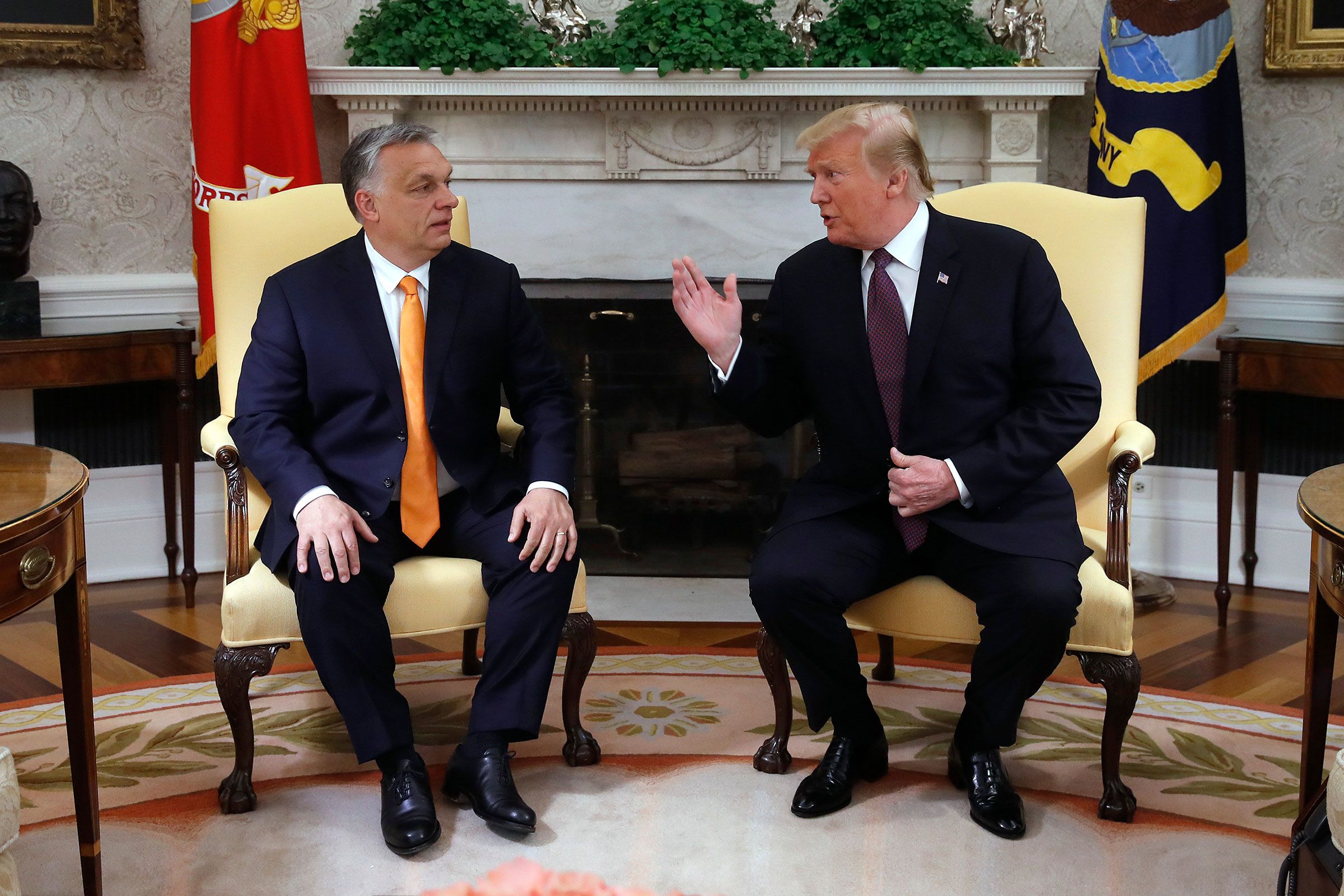Prime Minister Viktor Orbán of Hungary, known for his systematic dismantling of democratic institutions in his home country, is set to meet former President Donald Trump at Mar-a-Lago. This meeting comes amidst speculation that Trump, if re-elected, might employ similar tactics to undermine the democratic system in the United States.
Orbán, who initially came to power through a democratic election, has since weakened the democratic institutions of Hungary by undermining the legal system, dismissing civil servants, politicizing business, attacking the press, and intimidating opposition parties. His anti-immigration rhetoric and demagoguery have drawn parallels with Trump’s own political style.
Interestingly, Orbán has chosen to meet Trump, the presumptive GOP nominee, rather than current administration officials. This decision seems to reflect his hope that Trump will regain the presidency in the upcoming election. The two leaders share a history of mutual admiration and similar political ideologies.
Trump’s decision to meet with Orbán, a European leader often labeled as an autocrat, is telling. It suggests that Trump admires Orbán’s strongman leadership style, unburdened by legal and political restraints. Orbán’s frequent praise of Russian President Vladimir Putin, a controversial figure himself, mirrors Trump’s own relationship with the Russian leader.
Orbán’s far-right populism, anti-immigration stance, Christian nationalism, and hostility towards LGBTQ rights have resonated with Trump’s “Make America Great Again” followers. His influence extends to the Conservative Political Action Conference, an annual gathering of pro-Trump forces, where he has spoken in the past. Hungary is set to host an overseas edition of this conference next month.
Despite being a member of NATO and the European Union, Orbán, like Trump, has often acted against the interests of western democracies. His long-standing feud with the EU over his anti-immigration policies and his role in delaying Sweden’s entry into NATO are examples of this.
Orbán’s endorsement of Trump’s views on Ukraine, which align with Putin’s interests, has raised concerns in Kyiv about the implications of a potential second Trump term. Trump’s reluctance to provide further US aid to Ukraine has already influenced US policy, leading to rationing of resources among soldiers fighting Russia.
President Joe Biden, during his State of the Union address, criticized Trump’s hostility towards NATO allies and his affinity with Putin. Biden’s campaign also rebuked Trump for his meeting with Orbán, drawing attention to the Hungarian leader’s erosion of democracy and his close ties with Putin.
The contrast between Biden’s commitment to preserving democracy, as expressed in his State of the Union address, and Trump’s warm reception of Orbán, underscores the stark political and geopolitical choices that the upcoming US presidential election represents. While much of Europe dreads the possibility of a second Trump term, in Budapest, Trump is seen as a kindred spirit whose return would be welcomed.

